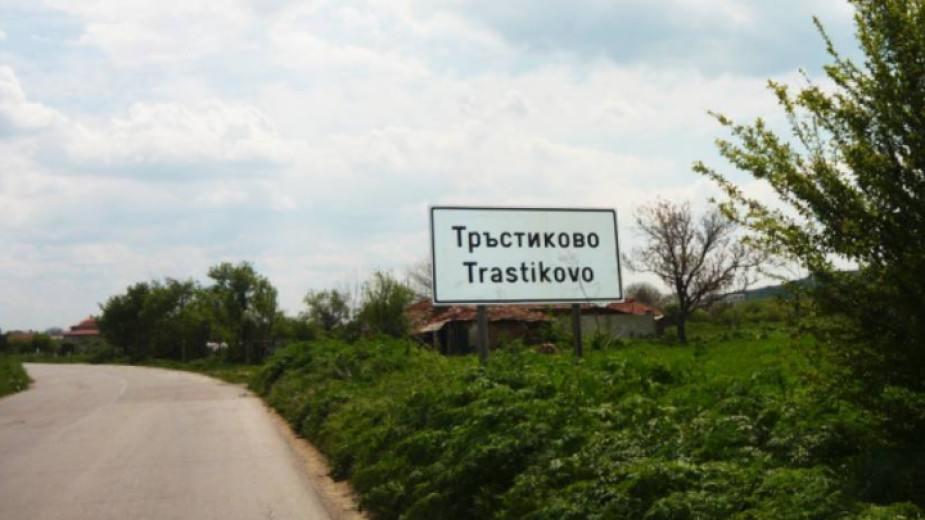 7
7
“Nine in the morning at the café. We sit here until 10.30, then back to the shade at home, and that’s it.” The people from Trustikovo, not far from Varna on the Black Sea, have adjusted their lives to a rigid routine – in the summer heat they are up early, and are working in their gardens by 5. “Hoeing, watering, sowing,” they say. After which they go to the café.
20 kms. from Varna, Trustikovo - one of the most populous villages in Avren municipality - has a population of almost 630. People lived in these lands since the earliest times. In the time of Ottoman domination, the village is made mention of in different documents as Karaach Sofular, and in 1935 it was named Trustikovo – after the reeds (trustika in Bulgarian) that once grew in the marshland around the village. 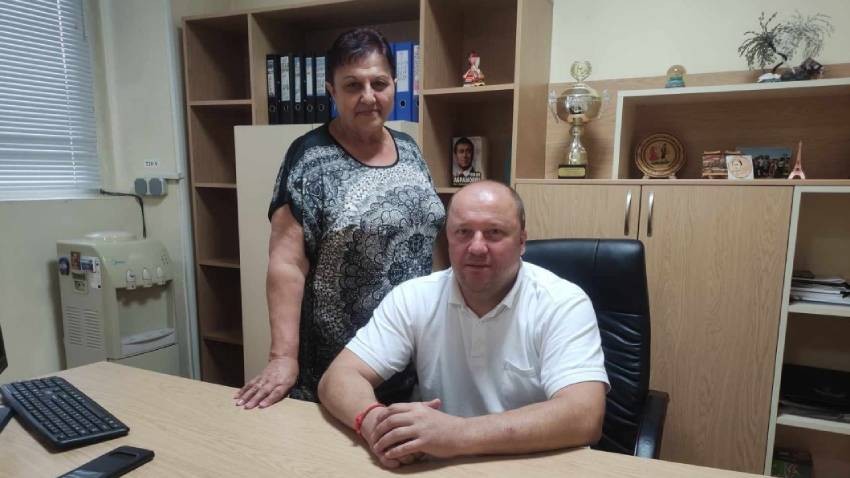
“I am very pleased with my tenure. I come to work with enthusiasm because people in Trustikovo are good people, they help me,” says the village mayor Lachezar Lazarov. Sixteen years ago, he quit his job in Sofia, and with the help of friends started on the campaign trail. Since then he has put through many projects.
The people in Trustikovo are mostly in agriculture – some work at the modern grain storage facility, others in construction and commute to Varna. There is a primary school in the village with about 60 students, a chitalishte (community culture club) with a children’s ensemble which is getting ready to take part in a festival in Greece, a pensioners’ club. There is also a doctor, a dentist, four shops, a road and a railway track, and it is close to Devnya with its factories, and to Port Varna-West, things any village in the country can only dream of. 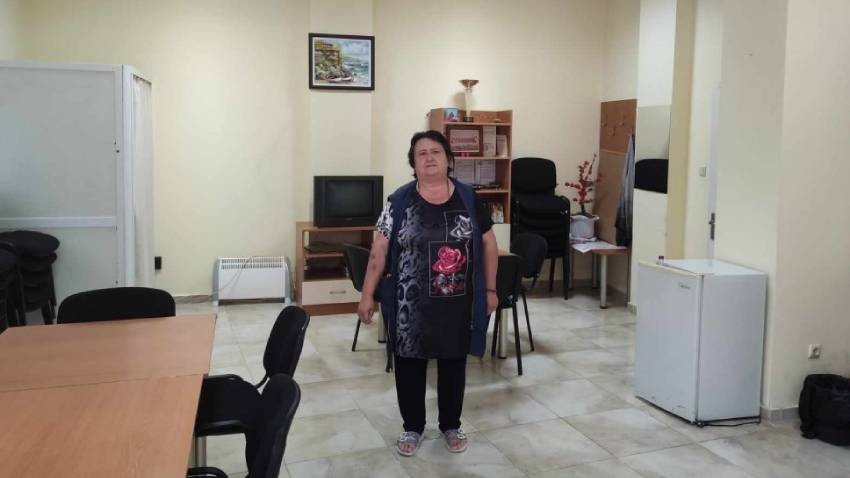
“All initiatives take place here, we get together for all feast days, and we have a polling station for the elections,” says Elena Ivanova from the pensioners’ club. “It is always the same when you live in a village – we respect and help one another. Life in a village is freer – if we have company we can sit out in the garden and play some music, no neighbor will ever complain or tell me to turn it off. Because another day it might be them.”
For all those who would like a taste of rustic life, there are old houses in Trustikovo up for sale, and at a good price, the mayor says. The big problem the village has are the frequent power outages, he goes on.
“We’ve had meetings with the energy provider, we get power cuts four-five times a morning, many people had their electrical appliances burn up,” the mayor says. “The other problem are the old water pipes, but we haven’t had any major water main breaks so far. Otherwise our water here is good.”
Meanwhile Vassilka, Stefka, Pavlinka, Stanka and Ivanka are up before sunup and after putting in some work in their gardens, are now taking their first sips of coffee. 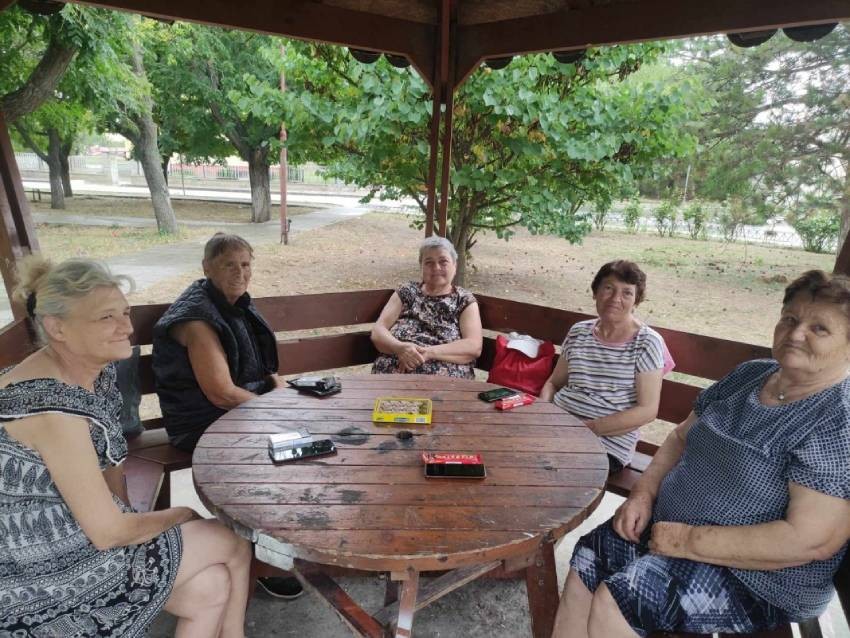
“I’ve lived in Varna, then I came back to the village,” one of them says and the rest join in to complain of intrigue, of people gossiping about who’s rich and who’s poor and how they got that way. As temperatures climb, the women get up and go home.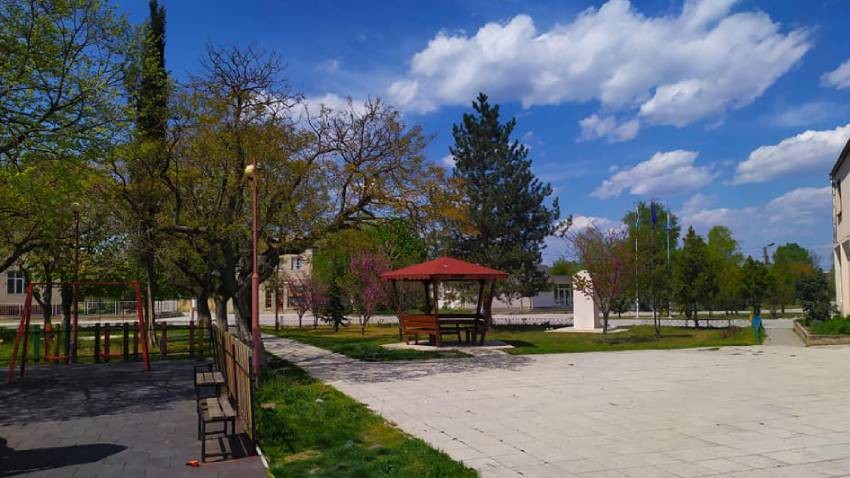
“That’s our daily walk, now we go home, cook, eat, then watch TV, go to bed and that’s it. Just passing the time,” another one of the women sums up their lives. And another villager adds, with some bitterness:
“What is life like here? There are houses nobody is living in, come spend a month here and you’ll find out how dismal things are. You can’t know that in five minutes. It’s not bad for us, we’re used to it here, but someone who hasn’t lived here won’t last a day,” says Dobry Lefterov, and goes on to complain of the scourge of mosquitoes which nobody seems to be spraying against, points to the pothole and goes on to talk about the rubbish in the streets. But then concludes: Well, it’s not the worst of villages – it may be lousy but what can you do?
Interviews by Alexander Yordanov, Radio Varna, BNR
Text by Diana Tsankova
Translated and posted by Milena Daynova
Photos: Radio Varna, BNR; Facebook/ Trustikovo, Varna
A Christmas tree with Bulgarian decorations has been placed in a central location at the Griffin Museum of Science and Industry in Chicago. For the fifth consecutive year, Bulgarians living in Chicago crafted the lavish decoration of the Bulgarian..
The usurpation of cultural heritage is one of the many inevitable consequences of any military conflict, both historically and today. Until the end of the war in Ukraine, it is impossible to adequately analyse the extent of the damage caused to the..
Athens plans to modernise the Greek army by 2030 Greece's Defence Minister Nikos Dendias presented the plan for changes in the army to the parties in parliament. The reforms will cover all three branches of the military. By 2030, 33 units..
According to the Annual Report on the Health Status of Bulgarian Citizens for 2023, t he main cause of death in Bulgaria is diseases of the..
At the Bulgarian Embassy in London, Prof. Bettany Hughes presented excerpts from the new BBC series - Wonders of Bulgaria. Prof. Bettany..
Over 3.5 million Ukrainians have arrived in or passed through Bulgaria since the beginning of the war. Nearly 200,000 people have found temporary..

+359 2 9336 661
